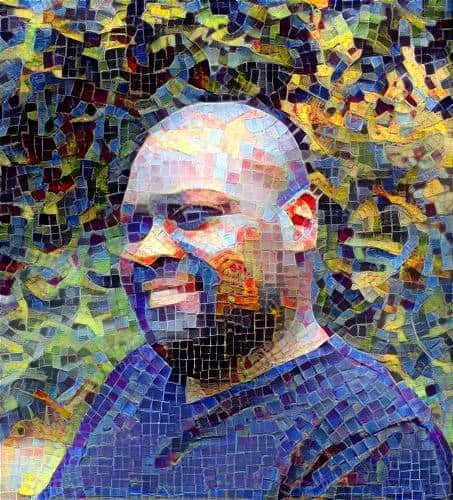Oppression: Some Questions
Knowing that one is living with oppression is a blessing whenever it decides to come. Not knowing it is a curse that will forever leave one much worse off. – Guynes
Before attempting to answer a few interesting questions arising from readers of the article Oppression: A Metaphor for the Nigerian Youth (https://wp.me/p1bOKH-P5), it is important to explain a simple taxonomy of oppression.
Firstly, there are countless instances of micro-oppression. One can experience it at the individual level. It involves persons who oppress and are oppressed within a direct relational condition. Examples of micro-oppression may be anything from one-off cases to multiple episodes within a systemic setting or practice. A parent may find it convenient to beat/abuse the only passive child. A police officer may brutalise an innocent pedestrian because he is be part of a police department that is by habit heavy-handed.
Secondly, there are instances of macro-oppression, which is entrenched within the traditions, preferences and expectations of social groups. The actors that perpetrate this kind of oppression develop routines that take advantage of the most significant number of people. Persons within a group by imposing “habits of obedience” on a whole range of targets. Macro-oppression can be as broad as we see in former communist one-party states (FCOS) that control whole national populations. Or as narrow as we witness in University Campus Grown Fraternities (UCGF) that have a few thousand active members. Macro-oppression also shows its face in many forms of systemic discrimination in which the dominant group enforces habits of obedience on subservient others. The military legalises it.
The first question I receive is if there are latent oppressors among the oppressees who once they gain liberation become oppressors afterwards? Logically, some of the oppressees have brains that are wired to oppress others. The reality is different. A close study of FCOS or UCGF will quickly reveal those latent oppressors among the oppressees as invariable practice. “If you can’t beat them, you join them” with high fidelity and expediency. Oppressors attract oppressors. The latent oppressor is usually the one who will volunteer. As a spy, informant, saboteur or enforcer for the oppressor. Only to exact much betrayal, treason, sabotage and distress on his already oppressed peers.
The latent oppressor can covertly do much evil to his fellows with the hope that he will become a legitimate oppressor someday. The latent oppressor who is so keen to destroy his fellows without a single scruple. To get ahead he will also act as ever-fawning gophers, house-boys, boy boys to oppressors or the powerful to get ahead.
Using Richard Dawkins; “selfish gene” as a point of reference, in the game of oppression there are Users (the oppressors), the Suckers (who accept their oppression) and Grudgers (who retaliate against the oppressor). A latent oppressor would usually sit among the Suckers. A Grudger is more likely by nature to be ready to test life for freedom. Finally, a latent oppressor (Sucker) is most likely to prefer returning to a condition of oppression after he achieves freedom. It makes him feel like somebody (cf Jail-Happy Prisoners).
The second question was if Malcolm X was talking about life testing in terms of “giving/taking life for freedom”, how comes I say no weapons of destruction are necessary to achieve freedom. In previous articles, (e.g. https://wp.me/p1bOKH-KN), I make it clear that death does not strictly mean the expiration of human life. But also the expiration of specific human capabilities. Without any disrespect to Malcolm X, far more people liberate themselves through education, awareness, enlightenment, self-knowledge, civil disobedience and enterprise. Yes, than through destructive methods and weapons. Malcolm X acknowledges this when he says “When you know that!” He believe in the ballot box. Furthermore, when your action or enterprise forces the arrogance, audacity, indulgence or contempt over you to expire, it is a distinct death of its own.
The third question, how does economic oppression work in practice? It is this particular question that necessitates me to introduce the taxonomy of micro-oppression and macro-oppression. Economic oppression is mostly an experience in the form of macro-oppression; it affects the many, not the few. Moreover, the routines of oppression hardly ever miss a potential target. Example: deeply embedded in the patriarchic psyche of Nigerian or African society is the expectation that any female [except for a few] who seek to participate in the economy as employees or entrepreneurs at middle and higher levels has to offer sex as a non-negotiable pre-condition.
Take a female who has a first-class in geology, speaks well, smashes the aptitude tests, turns her final interview for a job in an oil company into a seminal event. She would on her strength, only get her employment letter after appeasing a male senior staff(s) sexually. Such is economic oppression by way of perverse gender expectations. Disgusting!
Finally, in cases of economic oppression and similar, testing life can only succeed when the most significant number of oppressed people can collectively seek the death of the oppressors or their means of oppression. There is no need to preach the action.
Grimot Nane
Discover more from Grimot Nane Zine
Subscribe to get the latest posts sent to your email.

